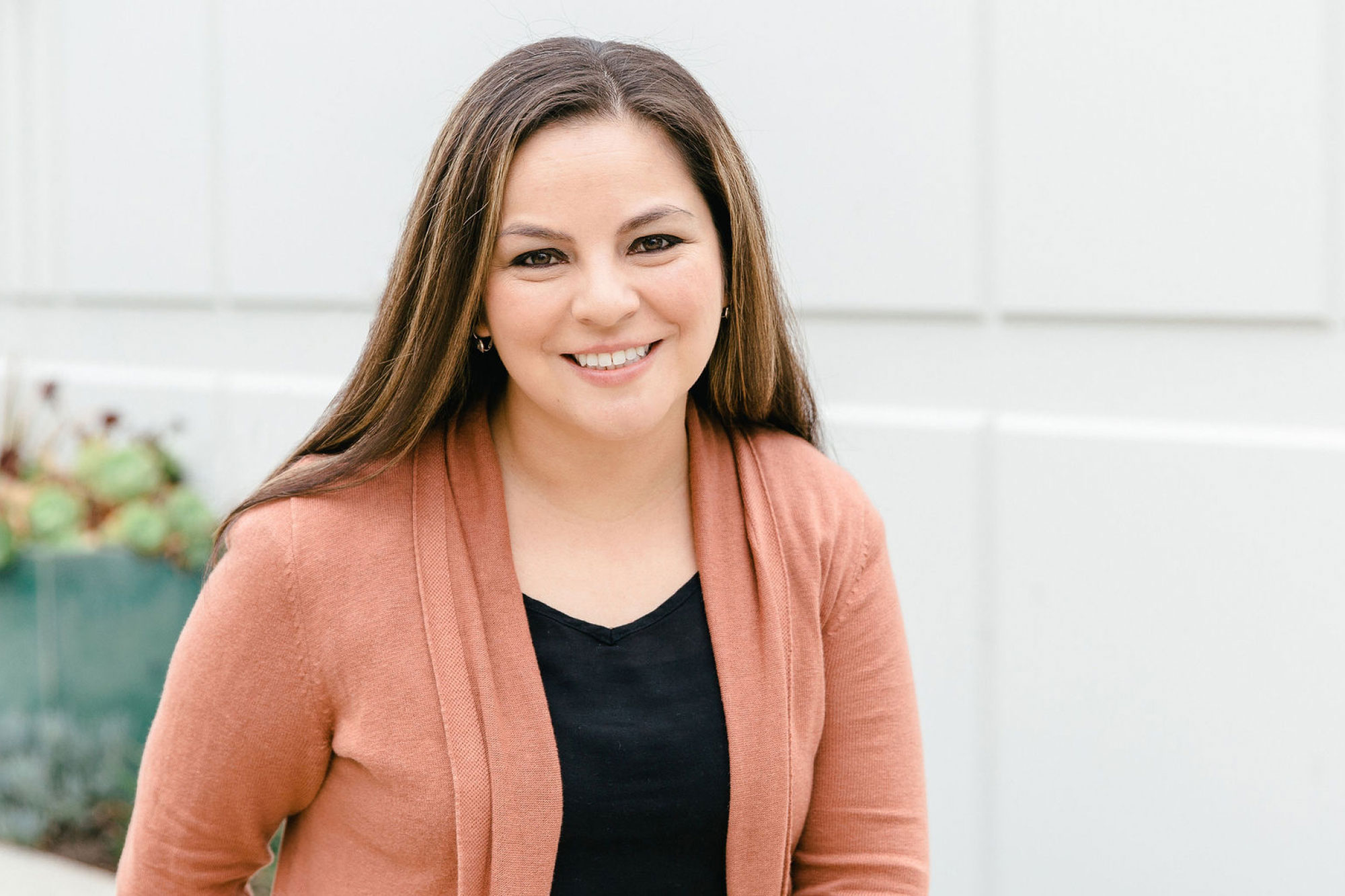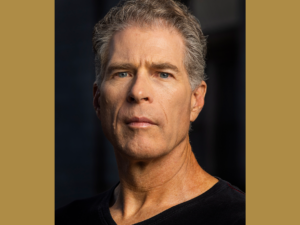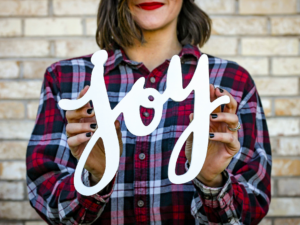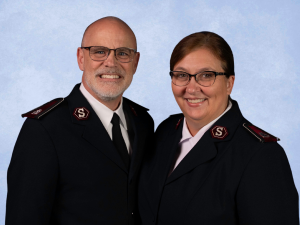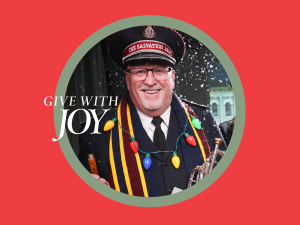As I mentioned in our last episode, there’s so much going on in our world and we want to address it here in a way that’s valuable for you. You’ve seen the news. You know what’s going on.
If you feel like you’re living through history, well, you are.
A global pandemic crisis, a global financial crisis, a crisis in Ukraine, and now a crisis in Israel and Gaza. War.
If there’s one thing we know it’s this: there will always be problems.
And yet some feel incredibly hard to navigate.
But, as Kelly Rodriguez will tell you, it’s really important we do.
Kelly is a Licensed Marriage and Family Therapist in California. A wife and mom of three, and a psychotherapist in private practice, Kelly is trained in maternal mental health, family therapy and trauma modalities to support individuals and couples.
Today, we’re not only living through history, we’re practically watching it unfold before us on our screens.
How can we best care for ourselves in an emotionally taxing world?
How do we address what’s going on in a healthy way with our kids?
Show highlights include:
- How constant exposure to distressing news and images impact our emotions and mental well-being.
- What happens in our mind and bodies when stress activates within us.
- Ways we can manage stress in an emotionally taxing world.
- How we can navigate discussions about significant news events with young children.
- How to approach these conversations and explain difficult topics.
- How to balance the truth using real words, without overwhelming a child with fear.
- The best ways to approach serious conversations and topics with older kids.
- What to do when you may not have the answer.
- Why it’s important to stay mindful about social media use amongst older children.
- How you can be aware of emotional stress in children to help manage their feelings.
- Ways to navigate joy and self-care in times of tragedy.
- Advice for parents to care for themselves and their families when stressed.
Listen and subscribe to the Do Gooders Podcast now. Below is a transcript of the episode, edited for readability. For more information on the people and ideas in the episode, see the links at the bottom of this post.
* * *
Christin Thieme: Kelly, welcome to the Do Gooders Podcast, thank you so much for joining me today.
Kelly Rodriguez: Thank you so much for having me.
Christin Thieme: Yes, I think this is a timely and important conversation for so many of our listeners, so thank you for joining in. I mean, it’s no secret that the world has a lot going on, right? We’re living in this time where what’s news, what’s shocking, what’s tragic is before our eyes practically in real time, we see all of the devastating images and all of the details. I mean, it just seems like every conflict that happens hits you in your heart and just is right there in front of you in detail. And on one hand we’re informed about what’s happening around the world, but on the other it seems like our brain can only process so much. So what is the effect of all of this on our emotions?
Kelly Rodriguez: Yes, it’s so true. I think right now we’re so constantly just getting so much information, we see things, we hear things, and of course we are absorbing all of that, and this is going to have an impact on our emotional wellness. This is something that we can’t avoid, so usually when we are constantly just receiving so much information, it can be really, just emotionally it can lead us to emotional distress. We can feel too much, too fast, too soon, and it doesn’t give us a space to process all the information we’re getting in. We’re just taking in, and it is then up to us to know what to do about it. So we can easily just start feeling our nervous system just taking in too much, feeling dysregulated.
So we have to pay attention because that’s going to affect our day-to-day lives. Everything that we hear, everything that we see, we are taking it in, and we need to be very mindful that the information overload doesn’t take a toll on our mental wellness. It can affect our mood, we can feel a lot of emotions at once and not know what to do with it, which can lead to the stress.
Christin Thieme: Well, that’s my next question for you. You mentioned dysregulation, this sense of overload, the stress, what actually happens in our body, in our mind, when that stress activates within us? And that is a stress response, right? I mean, we’re just watching these things on our screen, we’re not actually there in person, but it is, you would say, a stress response?
Kelly Rodriguez: Yes, absolutely. I think that when we are, like I said, we’re watching this, a lot of times we want to be mindful, but it’s coming from everywhere. So we may not be even ready to hear what we’re hearing, seeing what we’re seeing, there’s so much happening at once, and it can, again, trigger that intense emotion within us. And our nervous system is not ready to just regulate and calm down and be grounded, be centered, to make sense of everything, because a lot of it doesn’t make sense, so it can create a lot of overwhelm. And it’s important to think about our bodies and our minds go into this state of despair, just feeling hopeless, feeling a lot of different emotions at once. And the stress, when we have a stressor, different world events, we have hormones like cortisol, known as a stress hormone, it helps us regulate how we respond to stressful situations.
But when we have too much stress, it dysregulates our nervous system, we feel uneasy, we feel tense, we feel fatigued, we feel tired, we feel we can’t concentrate, or also we want to get so much information because we want to know everything, but it’s more out of feeling anxious and feeling fearful. So we start scrolling and just thinking that we’re getting all this information, but in reality, there is so much going on that our nervous system feels like it’s too much and we go into this state of fear and we can feel frozen and we don’t know what to do. So it’s important to think about how I can pause and think, what is happening here? How’s my nervous system? Am I feeling mood changes? Am I feeling on edge? Am I happy?
Our body is a messenger, so when we’re not going to regulate it, it’s easy to notice that if we’re paying attention. So if we pause and pay attention, notice how we can know if we are dysregulated, like I said, you can feel tired, you can feel irritable, feeling like just having problems sleeping, appetite changes, so those are all signs that let us know we are dysregulated, we are taking in too much and we’re not having an outlet to process a release of everything that we keep taking in. So our minds and our bodies are taking in so much and they store everything, so we need to make sure that we have healthy outlets.
Christin Thieme: How then should we be caring for ourselves in what is, you might say, an emotionally taxing world, right? I mean, we see war right now happening around the world, there’s always going to be problems, today, tomorrow, next month, there’s always things going on in the world that might cause that kind of stress response, so how do we go about best caring for ourselves and how do we manage our stress around these different life events?
Kelly Rodriguez: Yes, I mean, unfortunately, right? Stress is part of life. We can’t get away from that.
Christin Thieme: Too bad.
Kelly Rodriguez: Right? What makes a difference is how we respond to it. So first of all, it’s acknowledging I am going through a stressful moment. I feel this, this is where we’re watching news or we are just hearing things that make us feel overwhelmed, pay attention to our body. Okay, I’m feeling maybe I’m breathing faster, maybe my chest is just pounding, maybe I’m feeling teary-eyed, so many different things, again, listening to our body. So in order to take care of ourselves one of the ways is, again, notice your body, how do you feel? Do you feel tension? One of the things that really can help us is moving our bodies, stretching, exercising. And it doesn’t have to be complicated, it doesn’t have to be long, if we can take 10 minutes of our day to just move our body, it really does help us release that stress.
Also, staying hydrated, eating well, those are basic needs that really go a long way, and in moments of distress we neglect those. We kind of, oh, I’m not hungry, I’m not sleepy, but all of that can just intensify the stress level. So if we’re feeling stressed and we know we’re going through it, pay attention to those basic needs, and also acknowledging and accepting how you feel. A lot of times we feel like, oh, I shouldn’t feel that way, or I should feel this other way. And in reality, there are no good or bad feelings. There are feelings, and we need to practice self-validation. I am human, I am feeling sad, or I’m feeling happy, or I’m feeling worried, and I am human, I deserve to feel this way.
It’s okay to feel this way, so without judging anything, finding outlets to express those feelings. It can be talking, it can be journaling, it can be therapy, connecting with friends and family that can be supportive, not that are going to be joining you more in conversations. Being mindful of social media boundaries. It is okay to be informed, but we need to be mindful of when too much is too much. When we start noticing that we’re just doom scrolling, just going, going, going at it and just wanting more of the information, even though we know it’s not being good for us. So having those clear boundaries with media. Resting of course, and sometimes just the idea is to remind yourself that stress is part of life, and we get to choose how we take care of ourselves in the process.
Christin Thieme: Yeah. Some of those basics that we sometimes forget about, but thank you for those practical ways that we can better care for ourselves in these moments. What about for those of us with little kids, how do we best address what’s going on in the world with them? Do you bring it up if they don’t bring it up? Is there a right age to talk about things like war and other big news, big world events with your kids? What’s your take on that?
Kelly Rodriguez: Yeah, I have three little ones, and it is so hard. As a parent we want to protect our kids, we want to make sure that they don’t get exposed to any pain or anything like that. But it’s impossible, right? It’s hard to do. There are some issues that you would want to keep away from your kids, you don’t want to give too many details. But in this world we’re living in, they are exposed to so much information from different sources. We may try at home to not watch things or not talk about things, but in my experience, there is no right age to talk about these things. And it’s better to bring it up at home than to let them get this information somewhere else.
Of course, we’ve got to be very age-appropriate in the process. Usually when we have events like this, world events that are difficult to talk about, we think about maybe children seven and under, we don’t want to bring up these issues. But I recommend we do it in a way that is very like a casual check-in, because a lot of times they may be hearing things, they may know things that they’re not sharing about, their minds are wondering and trying to make sense of things. So what better place than at home to talk about this, and just make it casual, like, “There’s a lot going on in the world, I wonder if you’ve heard anything?” So sometimes it’s checking in, and they might not share anything, they might not know anything, and that’s okay. But it’s better to be able to offer that open space and safe space to talk about those hard issues.
Christin Thieme: Yeah, and I like that opening with a question, to give them the opportunity to talk and say what they know, but not offering it up, it sounds like might be the best approach with those little kids. I mean, there’s no right words for things that are going on that are so wrong. Practically speaking, how do we approach it? How do you open the conversation? How do you explain war? I mean, say they do come back to your question with, “Yes, I’ve seen some things,” or, “somebody at school was talking about a war going on,” how do you approach that with your kids?
Kelly Rodriguez: Yeah, that’s so hard. It’s so hard and it’s going to happen, right? Kids talk about it at school, at home, and some don’t, right? But they may hear things. So sometimes, like I said, just being able to, first of all, I would say check in with yourself before, if time allows, right? If you know you’re going to have this conversation, or it may come up, which we know it may happen anytime, maybe during these days, or just so much has been going on. And especially, if you have time, check in with yourself first, make sure you are regulated. All those practical steps we mentioned, just engage in that self-care, even if it’s in micro ways, like these micro-moments of self-care to help yourself be regulated, check in with yourself how you’re doing.
Then have a conversation, again, depending on their age. So with the younger ones, you may just want to bring out something, like I mentioned before, “There’s is a lot going on in the world, and I’m wondering if you’ve heard anything new lately?” And like I said, some of them might not, and that’s okay. So if they do say, “I heard this,” or, “I heard my friend talking about this, or I saw this,” or whatever, one of the things is listen, just listen, be curious about what they know. A lot of times we want to say, “Have you seen this? Have you seen that?” But a lot of times we need to know, okay, what have you seen? I’m glad you’re talking to me about this.” So listening before jumping into giving facts or information, or all of these things that they may not need at the time, but just simply listen, “What do you know? Where have you seen it?”
And knowing that you can just say things like, “I wonder what thoughts you’re having about it. Are you having any feelings about that?” And sometimes the younger ones may not have words to talk about these things, so we may need to facilitate this and give them the language, without telling them how they should feel, but just even sharing about experience, “Oh, you know what? You came across an image like this, I did too and it made me feel sad, or it made me feel confused, I wonder how you’re feeling.” So it helps them understand that it is okay to feel whatever they’re feeling. So just check in, open-ended questions, casually, making sure that you are regulated before, and be honest and clear. We definitely don’t want to be bringing these big words that can feel scary, but we do want to be honest, because most likely they are hearing these words in different places, and it may create more confusion if we don’t talk about it.
So of course we don’t want to get too much in detail, but again, it matters when we listen and know how much they know, how have they heard, and can they tell us the words that they know so far so we can use the same language and clarify any type of inaccurate information they may be getting. So using the words that they share, if they share any, right? But if they didn’t, you know your kid better than anybody else, you know the kind of language they understand, do they understand some words that maybe they use when they’re playing, when they’re reading? So those are the things that you can use to use the same type of language, that it has to be honest. Unfortunately, we wish we didn’t have to talk to them about these issues, but the truth is that is the world we’re living in, and it is better for us to be the ones who can just offer that containment for them, that safe space to say these words that can be really hard to hear.
So using words like aggression or harmful ways, or things like that, disagreements, those are things that they’ll feel so scary, but they are the reality. So honesty is important. And also if they’re not talking too much, you can just remind them, “I’m here to talk anytime. Sometimes it can be hard to put words to things, or to understand some things, so I’m here to talk if you have any questions.” Sometimes they might not understand everything you’re saying, but maybe you can do a little playtime with them, do a drawing, just a drawing time art time, it can really help them just understand things in a more appropriate way.
Christin Thieme: What about for kids who are a bit older who you know they know what’s going on, they’re hearing about it, maybe they’re actively talking about it in school, how do you approach it with them? Would you use a different approach with older kids than you would with younger kids?
Kelly Rodriguez: Yes, definitely you can use a more direct approach. You can start with the open questions, “I know you know what’s happening and I just want to let you know I’m here to talk if you feel like it.” Sometimes older kids are not going to be so open, or they may be, all depends on their personalities as well. Some kids may be waiting for you to check in with them and talk about it, and some of them may feel like, oh, that’s too much, I don’t even want to hear it, I don’t want to talk about it. And first of all, just validating that and saying, “I understand, I know you know what’s happening, and I want to remind you that we can talk about this together. Even if I don’t have all the answers, that’s okay, and we can talk about it, we can find out together. So I just want to make sure that you know I’m aware that of these things, and it can be a lot.”
So you’re letting them know that it is okay if they’re feeling overwhelmed by that, that they don’t have to just internalize all this information and just keep it in and not feeling safe to talk about it. So I think it’s important to just be honest, be clear, and listen. Again, it’s so important because a lot of times we jump into just saying things, and our own anxiety, our own stress, may lead us to just talking too much, or giving them answers. But just practice a pause and listen, be curious about what they know, what questions they may have. And sometimes even if they’re not ready to talk, that’s okay too.
Christin Thieme: Yeah, letting them know that they’re not alone in the knowledge of what’s happening.
Kelly Rodriguez: Yes, absolutely.
Christin Thieme: Nowadays with so much, I’ve heard it the other day called the information war. I mean, everything is displayed on social media, online, it’s even become part of the warfare, really. So this, just recently we’ve seen notices from schools, even local government entities, for parents warning them to delete social media apps from their kids’ phones to keep them off of social media, to limit their exposure to the war, to the digital side of the war. What do you think of that advice and is it practical?
Kelly Rodriguez: Yeah, I mean, in an ideal world that would be really helpful, right?
Christin Thieme: Right.
Kelly Rodriguez: As parents we want to shelter our kids, we want to keep them safe, we want to make sure that they’re having positive experiences. And social media, it’s a good thing, but it can be so overwhelming. So I think it also goes, as parents you got to think about your child. We all have a baseline, and maybe the younger children do need to be away from social media. So if that’s something that’s realistic for you, then absolutely, it’s helpful, because we don’t want to expose them to things that their brains are not ready to process. So if that’s possible, that’s okay. However, practically, it’s really hard. It’s really hard. That’s why it’s so important to talk about this, because if something happens, it slips off and they come across something, they know they can talk to you.
Social media, I think with the older ones, it’s more difficult, because you can only control so much. You can only check in and believe that they’re not consuming too much. I think it’s helpful, but it’s a little bit hard to keep up with, so I think it’s just keeping that open door of communication. And saying out loud for the older children, I know the media is sharing a lot of information right now, and I want to protect you. I want to make sure that you’re not taking in too much that it’s going to overwhelm you, so let’s be mindful of that. And even modeling that for them, because as adults we also do the same thing.
Christin Thieme: Right.
Kelly Rodriguez: And they’re watching, so we need to be mindful of, yes, it’s good advice, but is it practical? I’m not sure if it’s too practical, I mean, for the younger ones I think it’s more applicable, but even that can be hard at times. I think we just need to be mindful and checking, if we can, checking what sites they’re visiting, and even checking in with the older ones, “Would you share with me what sources are you using? Where are you getting this information? I know you want to be informed, so I’m wondering where do you go? Maybe I can also learn.” So now making it a way that you’re checking in on that stuff, but also just with learning through going through this together and learning together, it feels more supportive.
Christin Thieme: So as a mom, as a therapist, alongside keeping this open door of conversation, what are you looking for as a mom, maybe especially for those older kids that you really know they know what’s going on, are there emotional warning signs to look for? I mean, going back to that idea of the stress response, when it comes to our kids, are there things we should be looking for when so much is going on in the world as parents?
Kelly Rodriguez: Yeah, so definitely, again, it is a lot for all of us, and there are ways that we can see when things are getting a little bit out of control. When we notice mood changes, behavior changes, maybe isolation, they’re spending too much time in their room, or they’re spending too much time on their phones, or they seem distracted more than usual. Again, just knowing your baseline, you know them, so paying attention to that a little bit more than usual. Any moments where maybe they’re feeling, again, appetite changes, things that they’re just easily upset about and you’re wondering what else is going on? Maybe they’re not sharing, or maybe they’re just, again, not knowing how to name these things that they’re experiencing because it’s the first time for a lot of us that we’re experiencing events like this.
So just look for those signs, any mood changes, any behavior changes, low energy for concentration, not wanting to do things they usually enjoy, having problems sleeping, even hygiene changes, those are things that are just good information for us to pay attention to.
Christin Thieme: Yeah. So alongside keeping an eye on all of these things, keeping an open door of communication, caring for ourselves, I think for those of us who are geographically far removed from the conflict, it can be easy to feel almost a sense of guilt, I don’t know if that’s the best word, but a sense of guilt that we’re here, we’re safe, we’re not involved in these horrible things that are going on for innocent people. So what place does joy have in the midst of all of that? Does feeling joy mean that you’re turning away from the tragedy?
Kelly Rodriguez: Yeah, that’s a great question, because how do we continue living our lives knowing everything that’s happening around us, it can feel exactly that, you can feel that sense of guilt, like I shouldn’t be enjoying life right now, it shouldn’t feel joyful. And I would just like to remind people that there is the duality of emotions. You can feel two things at once, and they are absolutely valid. We can feel sadness, we can live with compassion for someone else’s pain. But also feeling like, you know what? I can also find small moments of joy that can help me get through these hard moments. So I think it’s important to remember that we are human and we are going to have, it’s a spectrum of emotions that we are going to experience, and yes, we can feel guilt, right? Powerlessness sometimes, like there’s something else I should be doing. But I think even joy has a space in the midst of these difficult times. It’s part of life, it’s part of life, and again, we can feel those two things at once and it only makes us human.
Christin Thieme: Yeah, absolutely. So Kelly, lastly, what’s your best piece of advice? If we had to boil everything down, what would you tell a parent, somebody listening, something that they can do today to better care for themselves and their family right now?
Kelly Rodriguez: Yes, I think one of the main things that can be helpful during these stressful world events is trying to stay present. I know that there’s a lot happening and we can be worrying a lot about what’s going to happen tomorrow, all of these things, and they’re absolutely valid. But staying present, just today, before you go to bed, check in with yourself, okay, what was one thing that I enjoyed today? And if you catch yourself not finding a lot of those moments, well maybe being present is thing that you can do, just do one thing that you enjoy being present with your family, with yourself, I don’t know, it can be having a dance party with the little ones, it can be enjoying a good meal together, it can be looking at pictures of happy memories. So staying present, choose a moment of the day to just be present.
Christin Thieme: Love it. Kelly, thank you so much for helping each one of us navigate these times.
Kelly Rodriguez: Yes, absolutely, thanks for having me.
Additional resources:
- Get support from moms who are right there with you. Join the Caring Moms Collective and find a place of low-pressure, high-encouragement love anytime you need it, whether you know it or not. Get in the group today.
- It’s because of people like you The Salvation Army can serve more than 24 million Americans in need each year. Your gift helps fight for good all year in your community. It’s an effort to build well-being for all of us, so together we rise—and that good starts with you. Give to spread hope with a donation of funds, goods or time today.
Listen and subscribe to the Do Gooders Podcast now.








